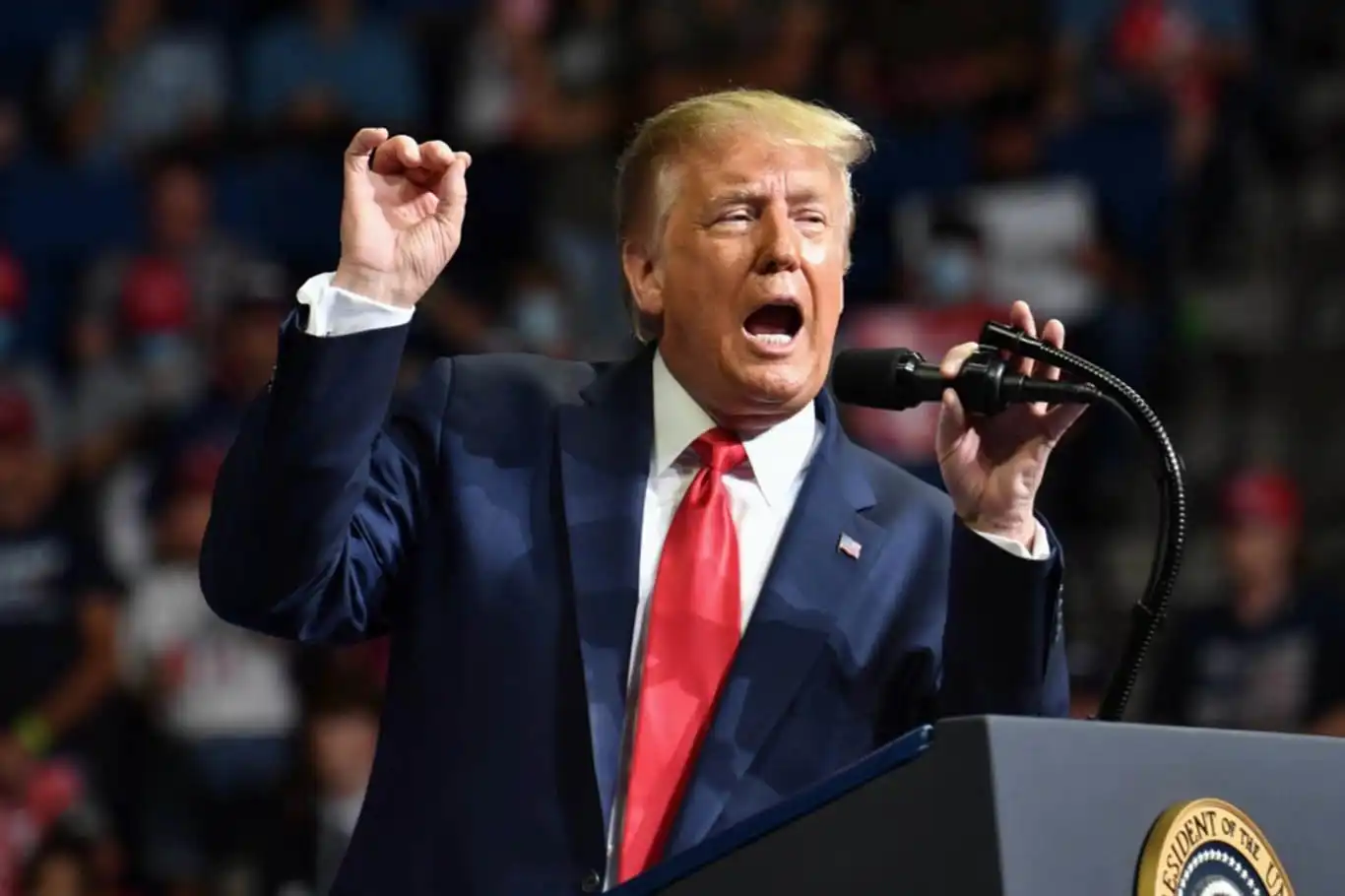U.S. revives Muslim ban: 12 nations barred under Trump’s executive order


U.S. President Donald Trump has reinstated a broad travel ban targeting citizens from 12 countries, reviving one of the most controversial policies from his earlier administration.
The move, which Trump framed as essential for national security, comes in the aftermath of a recent violent incident in Colorado involving an Egyptian national.
The executive order, signed on Wednesday, blocks entry to the United States from Afghanistan, Iran, Yemen, Somalia, Libya, Sudan, Eritrea, Chad, Myanmar, the Republic of the Congo, Equatorial Guinea, and Haiti. Partial restrictions were also imposed on travelers from seven additional nations: Burundi, Cuba, Laos, Sierra Leone, Togo, Turkmenistan, and Venezuela. The order will take effect on Monday.
The policy comes just days after an incident in Colorado, where 28-year-old Egyptian national Mohammed Sabry Soliman reportedly used a makeshift flamethrower during a pro-Israeli rally, injuring several participants. Soliman, who had filed for asylum in 2022, is accused of acting in protest of Israel's ongoing military assault on Gaza, which has claimed tens of thousands of Palestinian lives.
In a video announcement from the Oval Office, Trump referenced the attack as evidence of the dangers of “unvetted foreign nationals,” asserting that “we don’t want them.” He claimed the ban is necessary to protect Americans from terrorism and criminal activity, particularly from countries lacking reliable identification and background screening systems.
“We cannot have open migration from any country where we cannot safely and reliably vet and screen,” Trump stated. “Recent events have underscored the extreme dangers posed to our country.”
While the order suspends most entry from the listed countries, it includes limited exemptions, notably for athletes participating in upcoming global sports events such as the 2026 FIFA World Cup and the 2028 Summer Olympics in Los Angeles. Certain work visa holders are also exempt under strict conditions.
International response to the announcement was swift. Venezuelan Interior Minister Diosdado Cabello urged Venezuelan citizens to avoid travel to the U.S., describing the country as increasingly hostile to foreign visitors.
Rights groups and legal experts have sharply criticized the policy, comparing it to Trump’s 2017 “Muslim Ban,” which similarly targeted Muslim-majority countries and faced extensive court battles before being partially overturned.
Jamal Abdi, president of the National Iranian American Council, condemned the renewed ban: “The impact of this policy will again be deeply personal and painful. Americans will be denied the ability to see their loved ones at weddings, funerals, and the birth of a child. This is a policy of division, not security.”
Legal analysts expect lawsuits to be filed immediately to challenge the executive order, which they say may once again face constitutional scrutiny.
In a related and equally controversial move, Trump also signed an order suspending visa approvals for international students enrolling at Harvard University. He accused the institution of promoting “un-American values” and labeled it a “liberal stronghold.”
That directive is expected to be challenged in court by academic institutions and civil rights organizations, with critics warning of serious repercussions for academic freedom and international collaboration.
Trump’s original travel ban in 2017, issued shortly after taking office, blocked entry to the U.S. from several Muslim-majority nations. The measure sparked widespread protests and was eventually narrowed by the courts before being upheld in a limited form by the Supreme Court in 2018.
With the 2024 presidential election behind him and his return to the Oval Office under way, Trump’s latest executive actions signal a return to a hardline stance on immigration that defined his first term. (ILKHA)
LEGAL WARNING: All rights of the published news, photos and videos are reserved by İlke Haber Ajansı Basın Yayın San. Trade A.Ş. Under no circumstances can all or part of the news, photos and videos be used without a written contract or subscription.
Three young sisters, aged 9, 11, and 17, tragically drowned when an overcrowded rubber boat carrying dozens of migrants capsized during a perilous crossing from Libya to Italy, the German sea rescue organization RESQSHIP reported on Sunday.
The Yemeni capital, Sanaa, was rocked on Sunday evening by a series of violent explosions following Israeli airstrikes that deliberately struck vital civilian infrastructure, including the oil company’s station on 60th Street and the Hizyaz power station south of the city, according to security sources in the capital.
Russia and Ukraine carried out a large-scale prisoner-of-war (POW) exchange on Sunday, with each side releasing 146 captives in a deal mediated by the United Arab Emirates, officials confirmed.
At least 64 Palestinians have been killed and 278 others injured in the Gaza Strip over the past 24 hours, as Israeli forces continue their relentless campaign of violence against the besieged population, local medical sources reported.